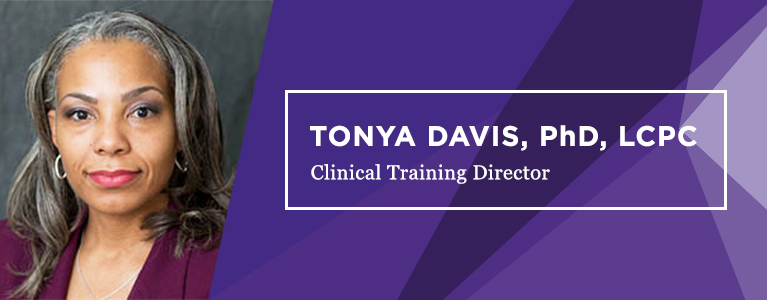Helping Counseling Students Prevent Self-Sabotage

As a clinical training director with Counseling@Northwestern, I see a lot of counseling students struggle with the concept of compassion fatigue and burnout. The almighty push to get clinical training hours accounted for can become more than a notion. I often encourage students to take on a realistic pace and to make choices that not only work best for them, but that work best for their families and support systems as well. Counseling students often find themselves in a unique position. They are told they must complete their clinical training requirements in conjunction with their academics within a specific timeline. Because they feel like they either don’t have a voice or can’t express concerns, these students often decide to keep pushing themselves to the point of mental and physical exhaustion.
It’s at this point in the quarter or semester we may find ourselves, as clinical training directors, having an open, honest, and candid conversation with counseling students. I might discuss the effects of ignoring the signs of exhaustion, how that directly or indirectly impacts their work with clients, and how this exhaustion might affect their families and/or support systems. It’s in having this conversation that counseling students might decide to weigh their options (i.e., take fewer classes, have open conversations with their site supervisors, reduce their caseloads, and perhaps extend their program by adding another quarter or semester). These options offer students the opportunity to feel like they are in control and have a say in the pace of their personal and professional journeys to becoming a counselor with a big “C.” Most times, students know about these options despite not making choices conducive to maintaining homeostasis. As their clinical training director, I take extra time speaking with students about the “whys” and “why nots.” Often, it is within their processing that students see how relevant their concerns are, how to validate their own experiences, and how important it is to follow through with their process of planning and maintaining their own self-care.
At Counseling@Northwestern, we pride ourselves on helping students become self-reflective practitioners. This requires students to engage in self-reflection, participate in intentional conversations, and find the voice to advocate for themselves. Through this process, students learn how to become cognizant counselors as they build skills to advocate for themselves, the counseling profession, and their clients. Our students develop the clinical skills and professional confidence to make real and lasting changes in the world.
Citation for this content: Northwestern University’s online Master of Arts in Counseling program.

